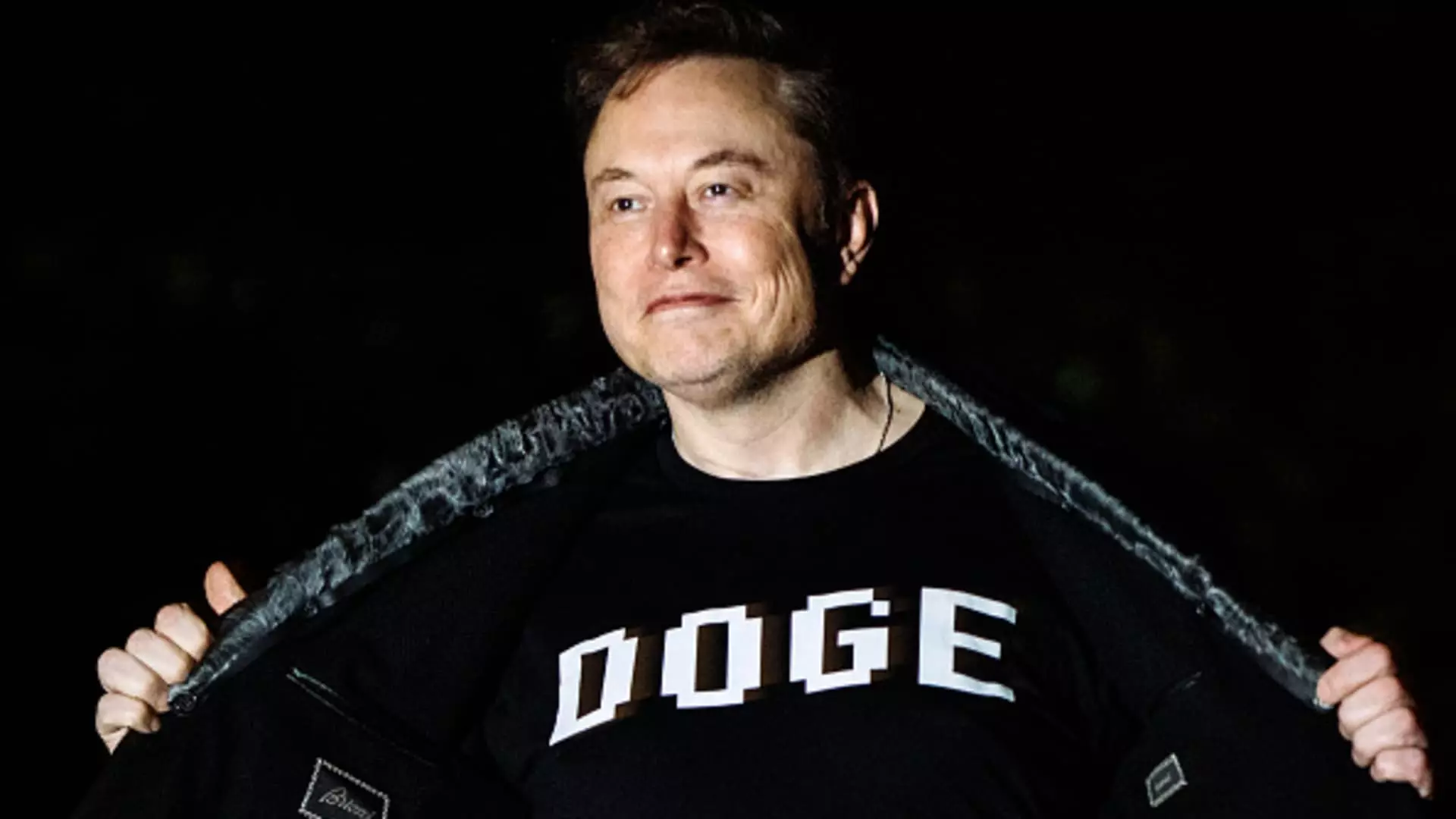Tesla has recently found itself in a whirlwind of controversy, driven largely by the dual commitments of its CEO, Elon Musk. On a day when Tesla shares surged, buoyed by rumors of Musk potentially stepping back from his role in the so-called Department of Government Efficiency (DOGE), the accompanying narrative starkly highlighted the tension between corporate leadership and political engagement. Reports suggesting Musk’s return to focus specifically on Tesla come amidst a backdrop of significant stock volatility, indicating that investors are eager for clarity in leadership amid the turbulence.
The subsequent rebuttal from the White House, labelling the reports as “garbage,” adds a layer of complexity to the situation. It raises questions about the veracity of political insiders and their influence over market perceptions. With Tesla’s stock experiencing notable fluctuations—dropping 6.4% over weak vehicle deliveries and rebounding slightly—it’s clear that any shift in Musk’s focus may offer either a lifeline or a further obstacle to the beleaguered automaker.
The Weight of Expectations
Much of the recent stock movement can be attributed to investor sentiment fueled by Musk’s dual roles. As he engages with political matters—rallying support for Republican candidates and addressing the complications of tariffs affecting Tesla’s supply chains—questions about his commitment to the company have surfaced. The fact that Musk openly admitted that the value of Tesla shares has plummeted, stating that “it’s very expensive” being in a political position, underscores that his political endeavors have tangible repercussions on his business.
This duality has bred discomfort among Tesla’s stakeholders. On one hand, Musk’s political influence could be an asset; however, as noted, it has also ignited protests and criticisms that threaten Tesla’s public image. These factors converge to create an environment of uncertainty for Tesla’s investors as they grapple with the risks presented by Musk’s heavy involvement in politics.
Investor Sentiment and Market Reaction
The broader implications of Musk’s political positioning reveal an important narrative about corporate governance in the face of personal ambition. Analysts often describe the stock market as a reflection of collective sentiment, and Tesla’s recent plummet—witnessing a staggering 36% drop in the first quarter—demonstrates how quickly perceptions can shift. An alarming trend for any investor, considering that Tesla had previously been a darling of the market. The mix of political branding and corporate performance creates a precarious balancing act for Musk. His focus, now seemingly divided, inevitably leaves investors anxious about future performance metrics.
Furthermore, the pressure on Tesla is exacerbated by external factors, including political tariffs stemming from incoming policies that may directly impact Tesla’s operations in critical markets, particularly with suppliers located in Mexico and China. This situation signals that the interplay of politics and economics is not merely an academic discussion but a real-life challenge confronting the automaker.
Future Challenges Ahead
Musk’s high-profile involvement in the current political landscape presents a double-edged sword. While some might argue that this could potentially align Tesla with favorable policies enacted by sympathetic politicians, the backlash from opposition groups demonstrates that public perception holds palpable consequences. Tesla must navigate these intricacies carefully. Musk’s ambition must be matched with strategic oversight to mitigate risks against the backdrop of scrutiny from investors, regulators, and the public at large.
Ultimately, as Musk contemplates the future of his roles, both at Tesla and within political spheres, the ramifications of his choices will resonate across the auto industry and the stock market. Balancing his innovative drive with the responsibilities of effective leadership at Tesla is imperative—anything less could lead to further declines in market performance and investor confidence. The stakes have never been higher.


Leave a Reply